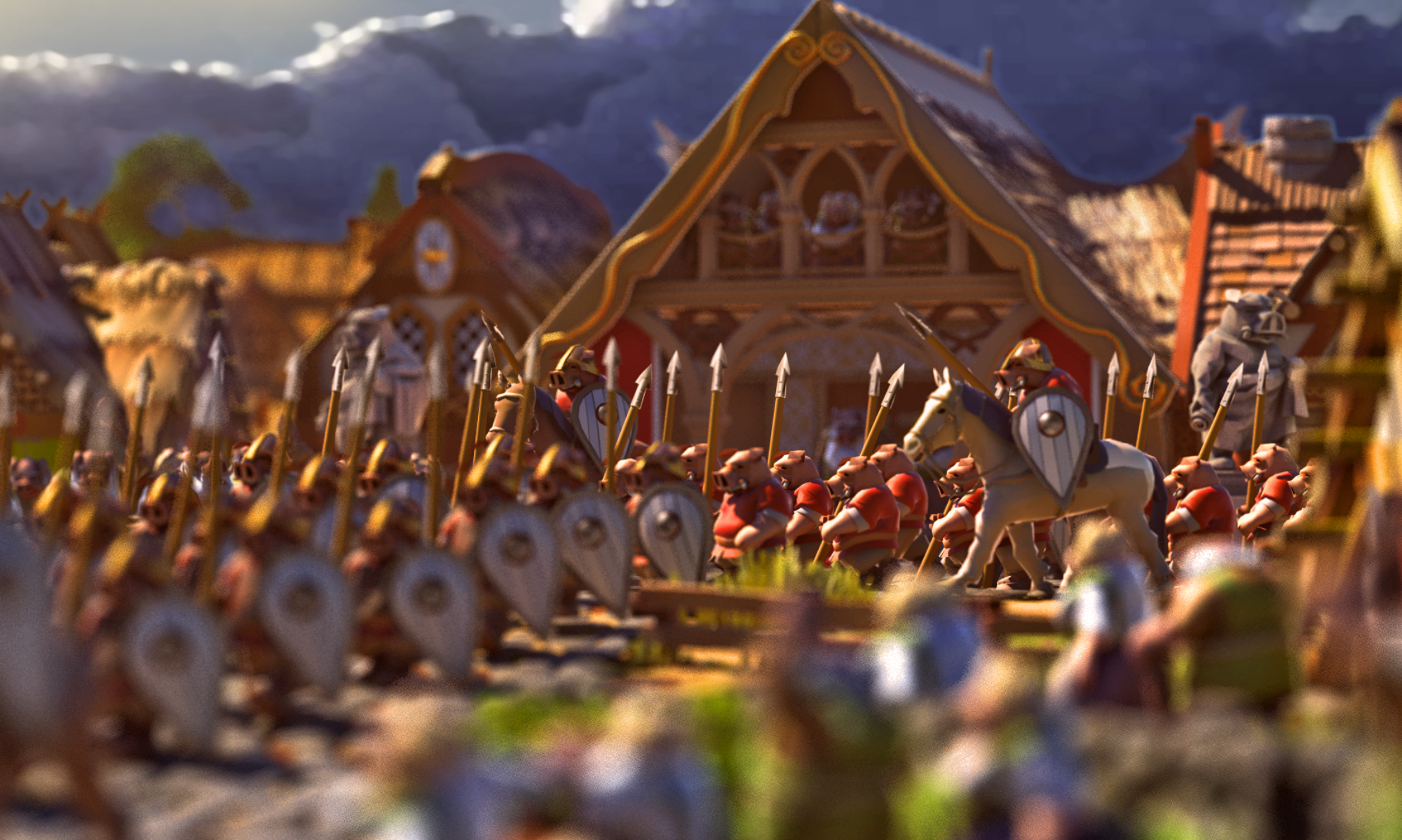This update is an overhaul of research and knowledge mechanics, adding the ability to speed-up projects with Research Points, innovation projects to trigger new ideas, diplomatic knowledge transfers (and not just ideas) and project setbacks when failing instead of having to repay & restart the project from zero.
This update also contains 2 other major features: Expansion points replacing State Power for territory maintenance, and an NPC automatic trader called the ‘Free traders’.
Infallible projects
This has been a common criticism of the game for a very long time: frustration from projects failing due to bad luck with RNG.
Now projects can no longer fail. Instead, if the success odds fail when completed, the project suffers a “set back”, losing only research progress.
This means its finally no longer required to manually restart failed projects, or to repay materials and costs.
Additionally, suffering a setback now gives a special “experience bonus” increasing the odds of success on the next trial. The bonus is proportional to the initial success odds so that if you had the bad luck of failing a high 80% success rate, it will ensure the probability to fail again further decreased.
This should make research less of a hassle and reduce the frustration from RNG bad luck.
Research Points
Population and research buildings now generate global Research Points which can be accumulated to a certain extent.
These Research Points can be used to ‘Haste’ ongoing projects at will, insta-finishing them.
The point of this mechanic is to offer a recourse when failing a critical project: now instead of having to wait another day for the second attempt to complete, you can use your stored points to finish it right away.
It also allows player to make better use of their gaming sessions: instead of having to launch the game just to start a critical project and then having to wait the next day to start using what it unlocks, its possible to insta-complete it and use it right away.
This should reduce “RNG” frustration and improve time efficiency of sessions.
Transferable Knowledges
It is now possible to transfer not only ideas, but actual full Knowledges. However these require the sender to pay for the transfer in stored Research Points.
This should help player help out allies that are far behind with many cheap knowledges missing, or to ‘sell’ valuable knowledges to others.
Innovation projects
A new kind of projects has been added as well to make technological progress more pro-active in mid/late game: innovation projects.
These projects allow you to target a global research domain and potentially earn a random new idea in that domain when successfully completed.
Most Innovation projects become available with the Academia knowledge.
Academies and other research buildings (like Libraries or Architects) now also help by generating extra Research Points, further allowing players to be pro-active in technological progress or knowledge reselling.
Expansion Points
The 2nd major aspect of this update is that territorial statuses now cost “Expansion Points” instead of State Power.
The point of this new feature is to simplify the balancing of players expansion by having a stat dedicated only to it, separating it from State Power that is used for many other unrelated things.
Expansion Points are unlocked by Policies or by new knowledges.
The exceedingly binary balance of city-state + outpost-spam followed by unlimited expansion with “regional administration” policy was also rebalanced thanks to this new stat: Expansion points are now earned much more gradually as the game progresses.
It’s possible to grow multiple regions in early game again while “Regional administrations” remains a critical policy unlocking the territorial statuses of towns and cities outside the capital.
Free Traders
The 3rd major aspect of this update is the introduction of the “Free traders” NPC to improve trading by boosting liquidities on the markets.
This NPC trader serves as an expensive intermediary between sellers and buyers operating with very high slippage between buy price and resell price, but whose sell offers are available to everyone regardless of trading agreements.
This NPC trader only buys resources from players that are specialized in production at least to lvl3, and buys at a very low price based on the world average ‘minimum price’. However, it’s buys are unlimited.
The purpose of Free Traders is double: providing exporting players a guaranteed output for their specialized productions (reducing the hassle of spamming trading treaties to everyone), and populating the market with large stocks of resources available to everyone (thus at a high price) so that players are less likely to be completely locked out of critical resources.
The prices of the Free Traders are also affected by the amount of resources they have in ‘stock’, and these stocks naturally decay based on the total world population. This prevents excessive exploits of a overselling a unique resource type for infinite incomes.
The free traders also allow Solo players to profit from trade and specialization of productions.
Cost of Consumption traditions reduced by half
The cost of consumption traditions has been reduced by half.
However, because costs of 0.5 wouldn’t work, it’s the earning speed of new Civpoints that had to be doubled as well as the cost of other traits.
This means cultural levels now cost half the XP (thus being gained twice as fast) and that production skills now cost 2 Civpoints per level instead of 1.
This makes adopting the consumption of new resources much cheaper than before.
The research overhaul update
v0.5.0.x
– lowered difficulty of Herbalism
– lowered difficulty of Metallurgy
– fixed bug can’t reinforce units when techs of equipment are unknown
– added retroactive civpoints bonus to compensate for the update’s effects
– blocked troop transfers when formation is encamped
– fixed bug of alcohol ideas triggering without needed materials
– upgrading townhall buildings now auto-changes the territory status as well
– it’s now possible to upgrade townhall buildings instead of building a new one
– added passive decay of free traders stock based on global world population
– added free trader price variations based on current stocks
– added NPC faction of Free Traders
– “Free traders” resell goods at 200% world average retail price, available to everyone regardless of trading agreements.
– Resource prodskill lvl3+ unlocks NPC “free traders” purchasing offers at 80% of world average minimum price
– fixed various issues with walls & cliffs connections
– fixed bug of abandonning settlements still now properly cleaning population from houses
– added abandonned building visual effects
– cancelling building demolition no longer gives free rebuild unless only 1HP was lost.
– restauring building is free if building has only lost 1HP
– outposts no longer allow for industries
– town & city statuses only available for capital unless “regional governements” policy is active
– excluded State Power & admin buildings from insolvency auto-abandonments
– outposts now require “territorial patrols” tech
– regional territories & settlers are now available pre-leadership
– implemented “Expansion Points”, replacing State Power as territory maintenance costs.
– doubled civpoints production + double prodskill costs = consumption traditions cost reduced by 50%
– fixed bug allowing to disband herds on the worldmap
– added possibility to transfer knowledges in treaties, costing Research Points to the sender.
– removed salaries from GDP
– temp reduction of the effect of treasury on monetary value
– added categories to knowledges & category filter in the UI
– added new type of project that has chances to give a new idea in a specific knowledge category when completed.
– agriculture unlocks agricultural innovation projects
– architecture unlocks contruction innovation projects
– academia unlocks innovation projects in society, sciences, economy and metallurgy
– added new “research” tab & UI to territory menu
– Elder circle, library, architect, and Academia services now generate extra Research Points.
– Failure of research projects now cause a progress setback instead of total failure.
– Failing a project gives an experience bonus increasing odds of success on the next trial.
– added bufferable “Research Points” that can be used to haste the completion of ongoing projects.
– improved project completion time prediction
– renammed “teacher” class as “wisepigs”.
– libraries now employ wisepigs instead of officials.
– removing profitability rate variations when distributed directly or by merchant: setting everything to 50% rate to prevent profitability issues with state backed industries buying ony at wholesale price.

